E-commerce Customer Service: Best Practices for Success
- April 9, 2024
From resolving inquiries promptly to offering personalized assistance, effective e-commerce customer service plays a crucial role in shaping the overall shopping experience. In this article, we explore the fundamentals of e-commerce customer service, outline five best practices for optimizing support operations, and provide actionable recommendations for leveraging five popular customer service platforms to enhance satisfaction and retention.
5 Best Practices for Effective E-commerce Customer Service

1. Prompt and Personalized Responses
Respond to customer inquiries quickly and personalize each interaction based on customer preferences and past behavior. This may include addressing customers by name, recommending relevant products based on previous purchases, and tailoring solutions to their specific needs.
2. Multichannel Support
Provide support across various communication channels—such as email, live chat, phone, and social media—to ensure accessibility and convenience. Maintain consistent service quality and response times across all platforms to deliver a cohesive customer experience.
3. Proactive Communication
Anticipate customer needs by proactively sharing information such as order updates, shipping notifications, and promotional offers. Keeping customers informed throughout the purchase journey builds trust and reduces uncertainty.

4. Efficient Issue Resolution
Empower support agents with the tools, training, and authority needed to resolve issues quickly and effectively. Streamline workflows and implement clear escalation procedures to minimize customer effort and improve resolution times.
5. Continuous Improvement
Gather customer feedback through surveys, reviews, and social listening to identify improvement areas. Use performance metrics and analytics to monitor trends, evaluate success, and continuously optimize service strategies.
What Is E-commerce Customer Service?
E-commerce customer service refers to the support provided to customers before, during, and after their online shopping experience. It includes responding to inquiries, resolving issues, sharing product information, assisting with orders and returns, and ensuring overall customer satisfaction. Effective customer service fosters trust, builds loyalty, and helps brands stand out in a competitive market.
E-commerce Customer Service Tools
Grispi
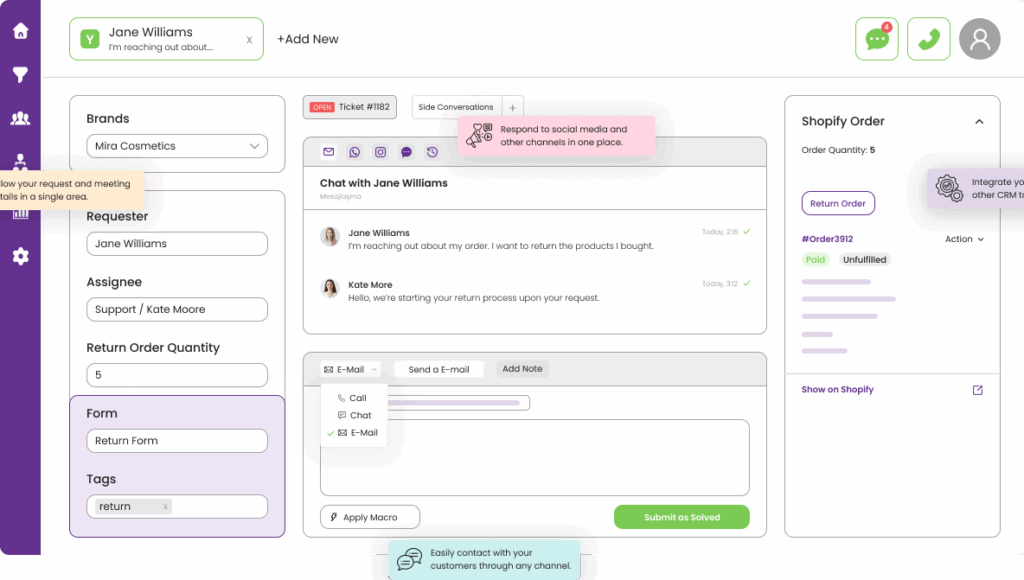
Grispi is a versatile customer support platform designed to simplify and optimize the management of customer inquiries across multiple channels. Its intuitive interface and robust feature set offer a unified solution for businesses aiming to streamline support operations.
Grispi excels at consolidating requests from email, phone, and social media into a single interface. This centralization enables support teams to manage interactions efficiently without switching between multiple tools.
Zendesk
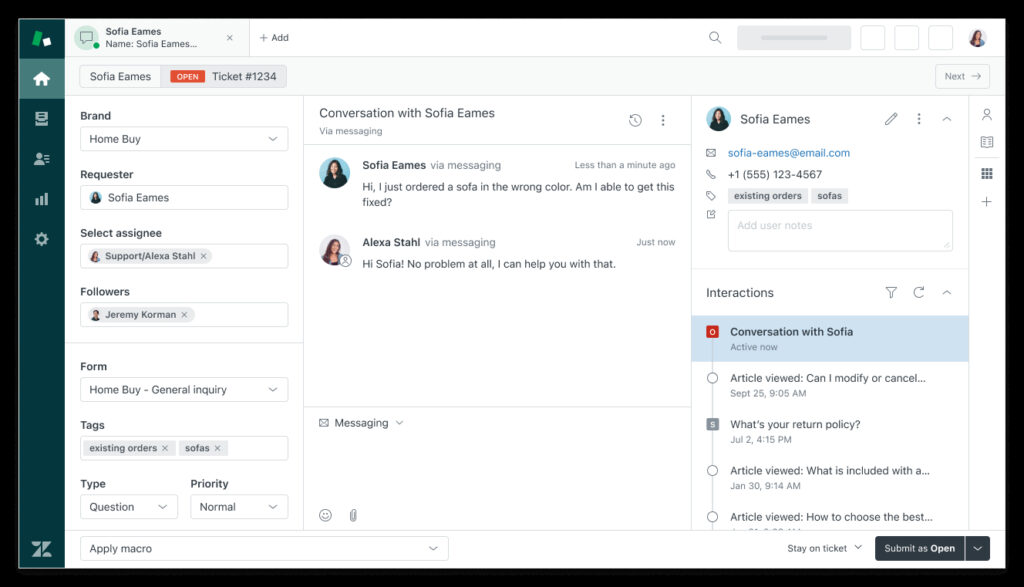
Zendesk provides a comprehensive suite of tools to improve e-commerce customer service. Its customizable ticketing system allows teams to categorize and prioritize inquiries effectively. Omnichannel capabilities ensure a consistent support experience across all channels.
Automated workflows reduce repetitive tasks, enabling agents to focus on more complex issues. Integration with knowledge bases empowers customers to find answers independently. Performance analytics help track metrics such as response times and satisfaction scores to support continuous improvement.
Freshdesk
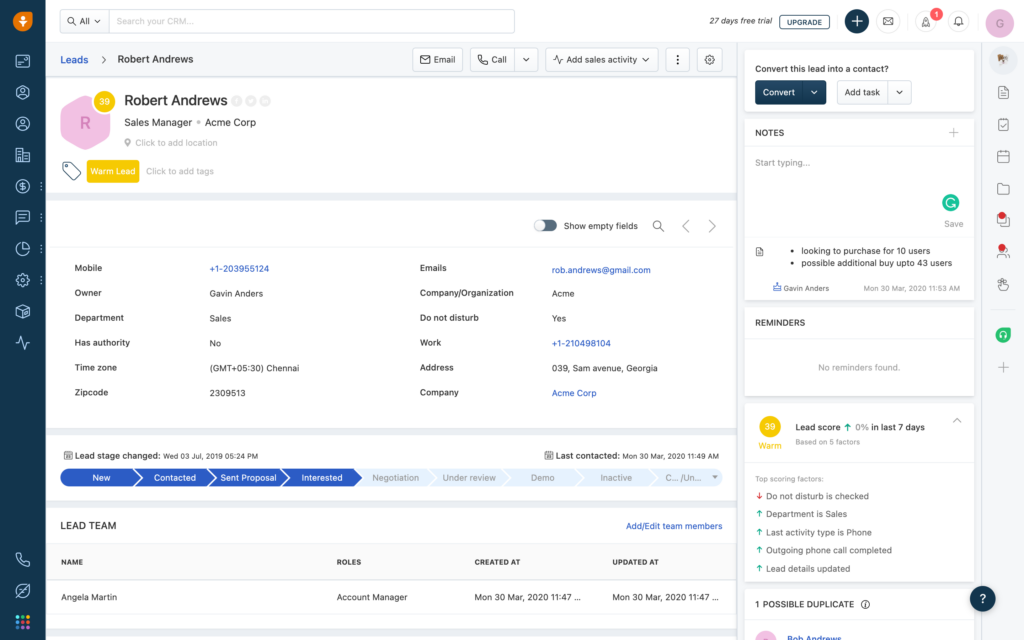
Freshdesk offers strong ticket management capabilities, allowing businesses to categorize, assign, and resolve inquiries with ease. Internal notes and collaboration tools facilitate team communication and knowledge sharing.
Automation rules streamline tasks like routing and auto-responses. Social media integration enables centralized support through a unified dashboard, helping ensure quick and consistent replies. Customer satisfaction surveys provide valuable insights for service improvement.
Help Scout
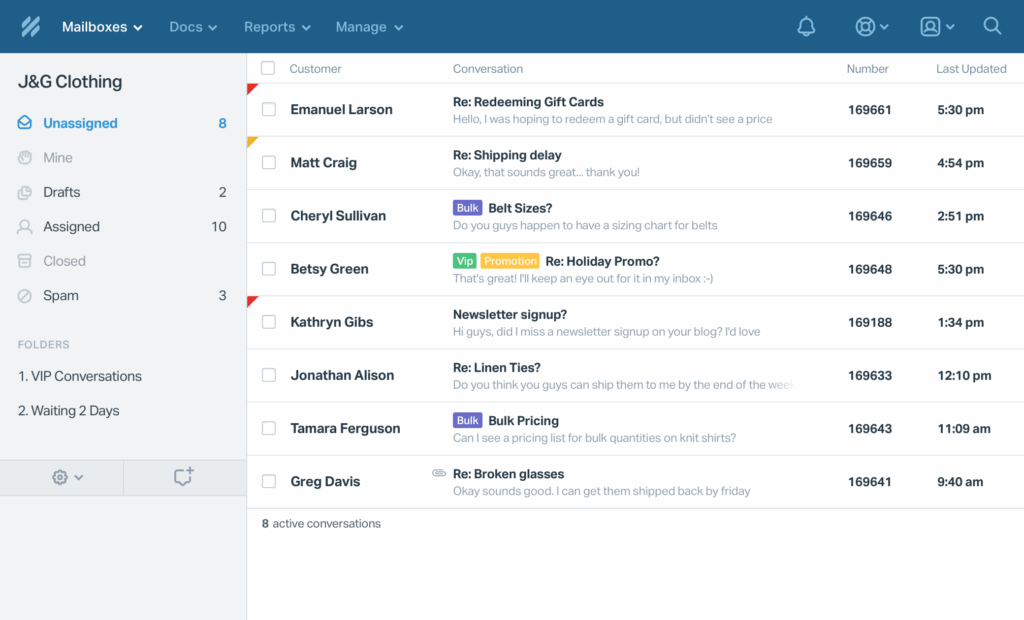
Help Scout’s shared inbox enables teams to manage customer conversations collaboratively. A robust tagging system and saved replies feature help categorize, prioritize, and respond to common questions quickly and consistently.
Performance reports track key metrics such as response time and resolution rate. CRM and e-commerce platform integrations further enhance workflow efficiency and service quality.
Intercom
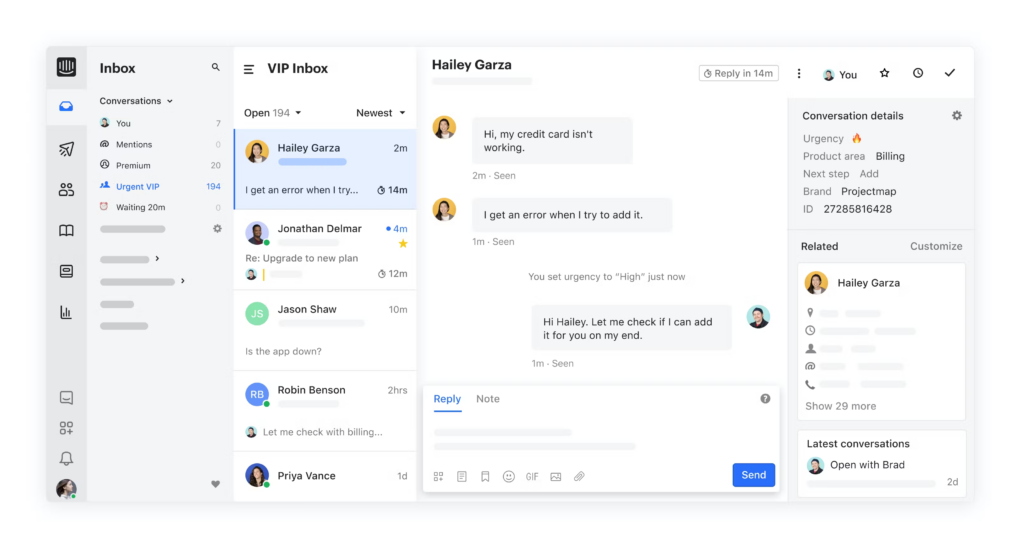
Intercom offers real-time messaging tools for proactive customer engagement. Chatbots handle routine inquiries 24/7, improving speed and availability. Customer segmentation allows businesses to deliver personalized messages and targeted offers.
Product tours ease onboarding and boost adoption among new users. Built-in analytics track chat volume, customer satisfaction, and team performance to identify areas for optimization.
Discover how Grispi can help you streamline support and enhance the customer experience. Start your free 14-day trial today!
Contact Us
Fill out the form for detailed information and demo account, let us call you.
